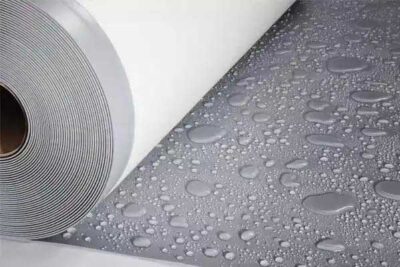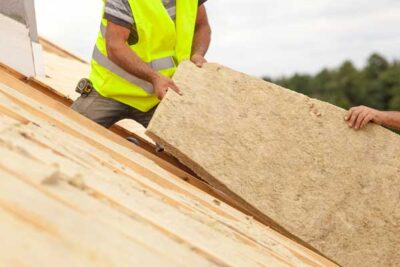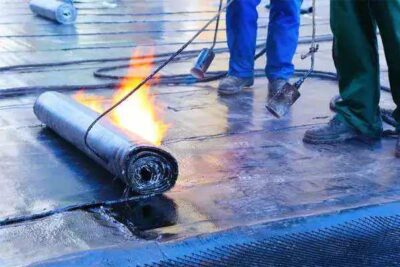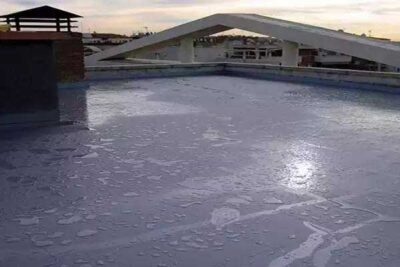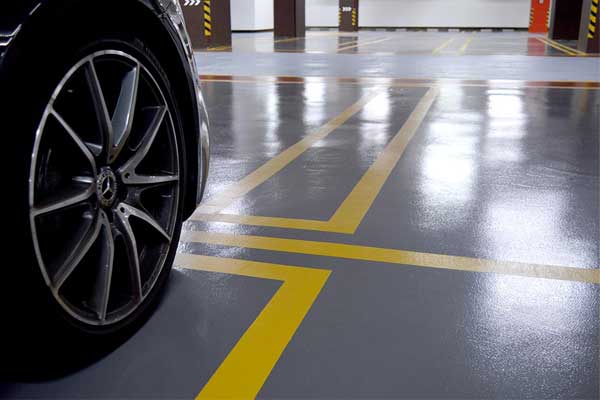
Contents
When choosing new flooring systems, garage and parking lot flooring or other exterior finishes for industrial use, epoxy resin flooring takes precedence over other flooring options for many reasons. Epoxy flooring is also known as resin flooring. It is highly durable, customizable, sustainable and decorative for any surface. Most attractive to floors is its high wear and tear resistance, making it the longest lasting flooring options. Here are descriptions of what floors are made of, different types of resin and where to use certain types of floor systems.
What is Epoxy
Epoxy is used to describe coatings created from two components, a combination mixture of polymer resins such as glue and hardeners, i.e. two different chemicals. This classifies epoxy as a copolymer. Chemically, the resin consists of short-chain polymers containing an epoxide group at the end. When properly mixed, the resin and its hardener react with each other, forming a chemical bond with the floor itself. The chemical bond creates a tough, degradation-resistant plastic material and adheres extremely well to its substrate.
The materials used in its resin make it a unique solution and contribute to its particularly high demands worldwide. What makes epoxy resin special is that it can be used for many different types of applications.
Compared to using other types of resins for flooring, there are many benefits to using epoxy flooring. Most importantly, it is known to be the highest strength resin in the industry. It offers the strongest bond between resin and reinforcement and allows the construction of the lightest part and the most durable modules.
It is typically chosen for its excellent mechanical properties and dimensional stability. When cured correctly, it provides good chemical and heat resistance and extremely low shrinkage. Epoxy resins are an excellent option for repairs as they bond to dissimilar materials and pre-cured materials. Most resins can be heat cured to increase strength, service temperature and dimensional stability. Parts must be cured at a temperature that matches or exceeds their maximum service temperature; otherwise it may deteriorate or deform. Bonding the material offers strength that cannot be matched by other common materials such as vinylester or polyester.
How Epoxy Works
Epoxy resin is the result of a chemical reaction known as curing. Curing is the chemical process involving chemicals together with epoxides as curing agents or hardeners. The curing mechanism is formed by crosslinking polymer chains. This result of curing is what creates thermoset polymers that offer distinctive strength, durability, versatility and adhesion. Curing is initiated by heat and high temperatures. In other words, it is a thermosetting substance. If the ambient temperature is not sufficient to form the curing process, the curing will not occur, it cannot be cured after receiving the product.
There are different resins that can be combined depending on the individual’s desired outcome. A more customized solution can be created by mixing plasticizers, fillers or additives. These additives are used to adjust the final properties for individual uses.
It works as an adhesive that creates a strong and durable floor with the floor covering, can withstand different conditions and protect the existing surface of the floor.
Epoxy Floor Coating
The simplest definition of epoxy flooring suggests a flooring surface with multiple layers applied to a floor with a depth of at least two millimeters. It typically occurs when comparing a floor and epoxy flooring. The difference between the two lies in the epoxy depth. As mentioned, these floors are classified as a coating that is at least two millimeters thick. Any floor less than two millimeters thick is often referred to as an epoxy floor coating.
Epoxy flooring is especially used in industrial, commercial and residential applications. This is because the flooring lasts for many years and offers a smooth and high performance floor surface that can withstand heavy loads. Epoxy flooring can help create a safe and clean environment for workers to work, for inventory purposes, and for the application and transportation of equipment within a warehouse, industrial area or commercial building.
The great thing about resin is that as a material it is stain resistant, abrasion and chemical resistant. Another thing that explains the popularity of epoxy flooring is its extreme longevity and durability. The waterproof and mildew-proof qualities of the resin make it an especially common coating used in wastewater areas.
Epoxy Floor Types and Application Areas
Self Leveling Floors
Self-leveling epoxy is used to apply to new, old, cracked or damaged concrete floors to create a smooth, durable and even texture on the floor’s surface. These self-leveling floors not only provide a glossy, seamless appearance, but are available in many different colors that appeal to commercial, industrial and residential spaces.
- Self Leveling Soils; It is used in areas such as buildings, warehouses, showrooms, garages and parking lots, kitchens, athletic facilities.
Mortar Floors
This flooring option is classified as the most rigid flooring system available for use. This floor consists of 100% solid epoxies and graded or quartz sand. Mortar systems are ideal for areas that require a floor that is extremely chemically resistant and can withstand a lot of impact. It can be used to repair cracks before applying any other type of flooring.
- Mortar Floors; It is used in areas such as mechanical areas, warehouses, commercial kitchens, restaurants, garages and parking lots, production facilities.
Quartz Filled Floors
Quartz-filled flooring is a combination of high-performance polymer resin and stained quartz grains. It should be used for decorative areas that require sanitary and slip resistant properties.
- Quartz Filled Floors; It is used in areas such as changing rooms, toilets, schools, cafeterias, lobbies, offices, showrooms.
Anti-Static Floors Electrostatic Charge (ESD) Resistant Floors
ESD can be dangerous for many work environments. ESD floors can be applied to reduce static hazards in your spaces. This floor typically contains a conductive compound that accumulates static electricity, dissipating any potential discharge. ESD is a solution, a highly recommended floor for areas containing flammable materials.
- ESD Floors: used in electronics, chemical or pharmaceutical manufacturing facilities, healthcare facilities, or areas with flammable gases or liquids that present a risk of combustible dust accumulation.
Granite Floors
This type of floor features colorful flake materials placed to create a vibrant, multicolored look. The washers not only offer a seamless look, but also provide fine grooves to any surface to reduce slips and falls. Granite floors come in an endless variety of customizable sizes, colors, styles, and textures for any space.
- Granite Floors; It is used in areas such as changing rooms, gyms, showrooms, clinics, commercial kitchens.
Epoxy flooring is a practical, long-lasting, highly impact-resistant and versatile chemical solution that can be customized for any area. Whether you need an elegant entrance to a restaurant or you need a solid surface to stand up to industrial work, there is a suitable floor system for any space.

